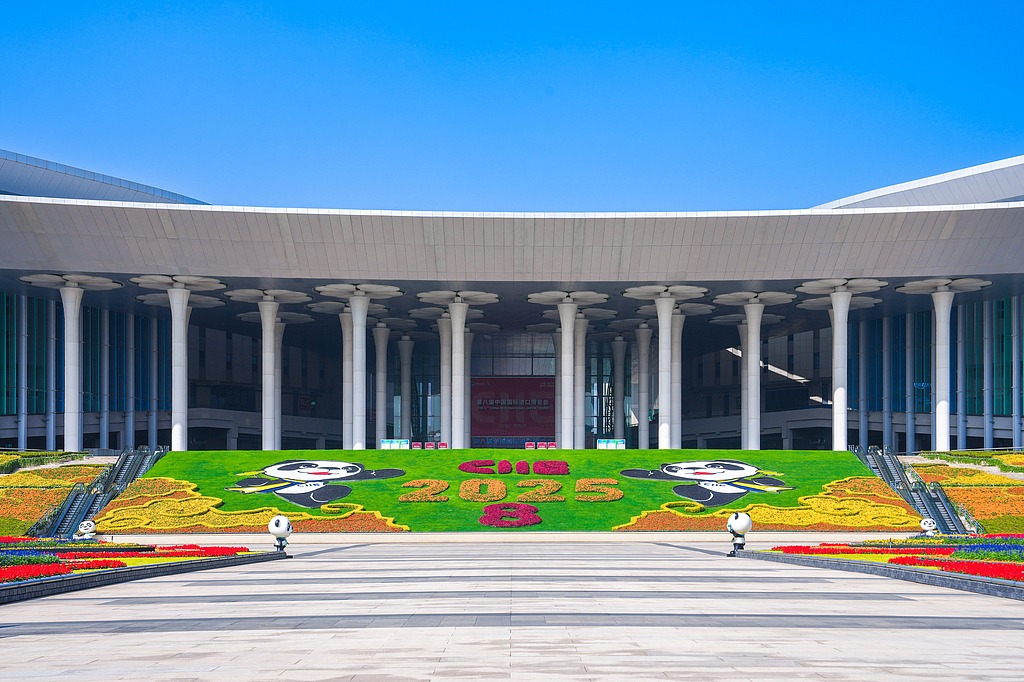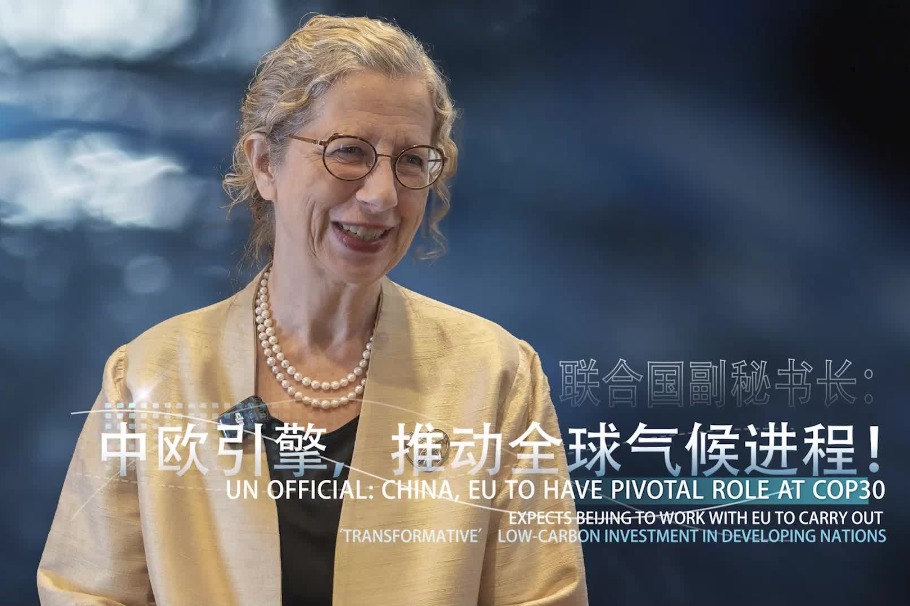Voice of the Global South


China's Global Governance Initiative offers guidance for the transformation of the global governance system
The world today is witnessing major changes in the form of persisting geopolitical conflicts, uneven economic growth and widening social divides. At the heart of these challenges is an international system built after World War II that no longer fits the needs of today's global governance.
From the perspective of global power dynamics, over the past 80 years, the number of United Nations member states has increased from 51 to 193, with the majority being developing countries. However, since the end of the Cold War, emerging economies and developing nations have remained seriously underrepresented in institutions such as the International Monetary Fund and the World Bank. This is one of the key factors limiting the effectiveness of global economic governance.
The United States, once a leader of the international system, has shifted from being a provider of international public goods to being a rent-seeker, eroding the foundations of the global order. Sharp swings in its domestic politics have fueled instability worldwide, while its retreat from global responsibilities has undermined the effectiveness of mechanisms such as the G20 and the World Trade Organization.
Moreover, the rapid growth of new technologies and industries, such as artificial intelligence, big data and robotics, is profoundly transforming global production systems and social structures. As Ray Dalio, founder of one of the largest hedge funds Bridgewater Associates, put it, "We are seeing a classic breakdown of the major monetary, political and geopolitical orders."
Amid profound challenges to the global order, as a responsible major power within the international system, China has taken on an increasingly important role.
At the Shanghai Cooperation Organization Tianjin Summit held on Aug 31 and Sept 1, Chinese President Xi Jinping proposed the Global Governance Initiative. This represents another major international initiative by China, following the Global Development Initiative, the Global Security Initiative and the Global Civilization Initiative. The Global Governance Initiative responds to the pressing questions of the times, reflects China's sense of responsibility as a major power, lays out a clear road map for advancing global governance and provides the international community with stable expectations about China's role in shaping it.
The rise of the Global South in recent years reflects the international community's strong desire for peace and development. China stands as a steadfast member of the Global South and an active champion of peace, development and cooperation.
Guided by the vision of building a community with a shared future for humanity, China has advanced the Belt and Road Initiative in partnership with other countries and international organizations to promote practical cooperation in infrastructure connectivity, trade and investment facilitation, financial collaboration and people-to-people exchanges. Mechanisms such as the Forum on China-Africa Cooperation and the China-Arab States Cooperation Forum have created broad platforms for dialogue and cooperation in politics, the economy and culture. Under the UN's new scale of assessments adopted in December 2024, China's contribution to the UN budget reached 20 percent.
From concepts to concrete actions, China has developed a comprehensive plan for global governance, reflecting its role as a responsible major power and earning international respect.
China's peaceful development is rooted in its own reform and has also benefited from effectively aligning its domestic strengths with the opportunities of economic globalization through continued openness. In the face of mounting global challenges, China remains committed to upholding the international system centered on the UN and the international order based on international law. It rejects the West's pseudo-multilateral approach marked by exclusive blocs with "gang rules", as well as any radical attempts to overturn the UN and the postwar international order.
While maintaining the stability of the international system and order, the Global Governance Initiative charts feasible paths toward improving global governance.
First, staying committed to sovereign equality. Global affairs should be discussed by all, the governance system should be built by all, and the outcomes should be shared by all. Countries should be participants, contributors and beneficiaries of the international system, promoting an equal and orderly multipolar world and a more democratic international order.
Second, staying committed to the rule of international law. Relations among states and the management of international affairs should be governed by institutions and rules rather than by power politics or coercion. China has supported the establishment of the International Organization for Mediation, which was officially inaugurated on Oct 20 in the Hong Kong Special Administrative Region. As an innovative step in advancing the international rule of law, this new institution fills a gap in global mediation mechanisms and provides an important legal public good to strengthen global governance.
Third, staying committed to multilateralism. Drawing on traditional Chinese principles that emphasize harmony between humanity and nature, governance for the common good, and respect for cultural diversity, China continues to promote a model of governance that is inclusive, cooperative and sustainable.
Fourth, staying committed to a people-centered approach. The rights of all people to survival, development and security should be prioritized, ensuring that individuals everywhere become both participants in and beneficiaries of global governance.
Fifth, staying committed to real results. Effective governance depends on coordinated global action, systematic reform planning and the mobilization of diverse resources to deliver tangible results through pragmatic cooperation. Guided by this principle, China has signed Belt and Road cooperation agreements with more than 150 countries and more than 30 international organizations, completing landmark projects such as the Jakarta-Bandung High-Speed Railway, the China-Laos Railway and Greece's Piraeus Port. China has also facilitated reconciliation between Saudi Arabia and Iran as well as internal Palestinian reconciliation. At the same time, China has continued to advance the dual carbon goals of peaking carbon dioxide emissions before 2030 and achieving carbon neutrality before 2060 to contribute to global climate governance.
As the world commemorates the 80th anniversaries of both the victory in the World Anti-Fascist War and the founding of the UN, it is the shared responsibility to draw lessons from history and work toward a fairer and more equitable international system and order. As the world's largest developing country, the second-largest economy, the leading manufacturing power and the largest trading nation, China serves as the voice of the Global South in shaping the transformation of global governance.
The Recommendations of the Central Committee of the Communist Party of China for Formulating the 15th Five-Year Plan (2026-30) for National Economic and Social Development, adopted at the fourth plenary session of the 20th Central Committee of the CPC on Oct 23, call for a higher level of opening-up and the creation of new, mutually beneficial opportunities for cooperation. Over the next five years, China will continue to drive reform and development through openness, demonstrating its firm commitment to sharing opportunities and pursuing common progress with the rest of the world. From vision to action, China's major-country diplomacy with distinctive Chinese characteristics will continue to make meaningful contributions to the advancement of global governance.
The author is the vice-president and a professor at China Foreign Affairs University. The author contributed this article to China Watch, a think tank powered by China Daily.
The views do not necessarily reflect those of China Daily.
Contact the editor at editor@chinawatch.cn.


































